
V_Grievance
| V_WebMail
| Alumni
| V_Login
| W_Login
| V_LMS
| Route Map
| Contact
| Vasavi Tech Bite
| Events
| Consultancy Fee
| Online Fee Payments
Department of Artificial Intelligence and Machine Learning came into inception from 2021 onwards with an intake of 60 seats in B.Tech. From 2022 onwards the intake was increased to 120 seats.
| Sl.No | Name of the Course | Eligibility Criteria | Duration | Intake |
|---|---|---|---|---|
| UG Programmes | ||||
| 1 | B.Tech-Artificial Intelligence and Machine Learning | AP EAPCET | 4 Years | 120 |
To evolve as a centre of academic and research excellence in the area of Artificial Intelligence and Machine Learning.
To utilize innovative learning methods for academic improvement.
To encourage higher studies and research to meet the futuristic requirements of Artificial Intelligence and Machine Learning.
To inculcate Ethics and Human values for developing students with good character.
Artificial Intelligence and Machine Learning Graduates of this programme will be able to :
1. Adapt to evolving technology.
2. Provide optimal solutions to real time problems.
3. Demonstrate his/her abilities to support service activities with due consideration for Professional and Ethical Values.
Artificial Intelligence and Machine Learning Graduates will be able to :
1. Engineering knowledge:Apply the knowledge of Mathematics, Science, Engineering Fundamentals and Concepts of Artificial Intelligence and Machine Learning to the solution of complex Engineering problems.[K3]
2. Problem Analysis:Identify, formulate, review research literature, and analyze complex engineering problems reaching substantiated conclusions using first principles of Mathematics, Natural Sciences, Artificial Intelligence and Machine Learning. [K4]
3. Design/development of solutions: Design solutions for complex engineering problems and design system components or processes that meet the specific needs with appropriate consideration for the public health and safety, and the cultural, societal and environmental considerations.[K5]
4. Conduct investigations of complex problems: Use research-based knowledge and research methods including design of experiments, analysis and interpretation of data, and synthesis of the information to provide valid conclusions.[K5]
5. Modern tool usage: Create, select, and apply appropriate techniques, resources, and modern engineering and IT tools including prediction and modeling to complex Engineering activities with an understanding of the limitations.[K3]
6. The engineer and society: Apply reasoning informed by the contextual knowledge to assess societal, health, safety, legal and cultural issues and the consequent responsibilities relevant to the professional Engineering practice.[K3]
7. Environment and sustainability: Understand the impact of the professional engineering solutions in societal and environmental contexts, and demonstrate the knowledge of,and need for sustainable development.[K3]
8. Ethics: Apply ethical principles and commit to professional ethics and responsibilities and norms of the Engineering practice.[K3]
9. Individual and team work: Function effectively as an individual, and as a member or leader in diverse teams, and in multidisciplinary settings.[K6]
10. Communication: Communicate effectively on complex Engineering activities with the Engineering community and with society at large, such as, being able to comprehend and write effective reports and design documentation, make effective presentations, and give and receive clear instructions.[K2]
11. Project management and finance: Demonstrate knowledge and understanding of the Engineering and Management principles and apply these to one's own work, as a member and leader in a team, to manage projects and in multidisciplinary environments.[K6]
12. Life-long learning: Recognize the need for, and have the preparation and ability to engage in independent and life-long learning in the broadest context of technological change.[K1]
A graduate of the Artificial Intelligence and Machine Learning Programme will be able to::
1. PSO1:Use Mathematical Abstractions and Algorithmic Design along with Open Source Programming tools to solve complexities involved in Programming. [K3]
2. PSO2:Use Professional Engineering practices and strategies for development and maintenance of software. [K3]
| S.No. | Name of the Faculty | Qualification | Designation | Profile |
|---|---|---|---|---|
| 1 | Dr. G. Loshma | B.E.,M.Tech.,Ph.D. | Professor & Head | view |
| 2 | Dr. K. Srinivasa Rao | M.Tech.,Ph.D | Assoc Professor | view |
| 3 | M. A.Leelavathi | M.Tech,(Ph.D) | Sr. Asst. Professor | view |
| 4 | Mr. M. Subba Rao | M.Tech | Sr. Asst. Professor | view |
| 5 | Mr. V. Rama Narayana | M.Tech | Sr. Asst. Professor | view |
| 6 | Mr. A.Rajesh | M.Tech | Sr. Asst. Professor | view |
| 7 | Mr. D. Ayyappa | M.Tech | Asst. Professor | view |
| 8 | Mr. M.Yesu Sekharam | M.Tech | Asst. Professor | view |
| 9 | Ms. K. Durga Saranya | M.Tech | Asst. Professor | view |
| 10 | Ms. G Kalyani | M.Tech | Asst. Professor | view |
| 11 | Ms. Prathyusha Ch | M.Tech | Asst. Professor | view |
| 12 | Dr. Jagadish Kumar KB | M.Tech.,Ph.D | Asst. Professor | view |
| 13 | Mr. Jaganathan.R | M.Tech | Asst. Professor | view |
| 14 | Mr. R. Lakshmana Rao | M.Tech | Asst. Professor | view |
| S.No. | Name of the Staff | Designation |
|---|---|---|
| 1 | Mr. K.N. Suresh | System Admin |
| 2 | Mr. K.V Srinivasa Rao | Hardware Technician |
| 3 | Mr. G.Bhanu Prakash | Hardware Technician |
| 4 | Mr. N.Rajasekhar | Junior Assistant |
| 5 | Mr. P.Manikanta Gupta | Lab Assistant |
| 6 | Mrs. P.Harika | Computer Lab Assistant |
| 7 | Mr. Md.Arriff | Computer Lab Assistant |
| 8 | Mr. P.Lokesh Reddy | Lab Technician |
| 9 | Ms. M. Naga Harika | Lab Technician |
| 10 | Mr. S. Nagaraju | Programmer |
| 11 | Mr. D.Srinivasa Rao | Attender |
| 12 | Mr. M.Siva Krishna | Attender |
| 13 | Mrs. A.Sri Karuna Kumari | Attender |
| 14 | Mr. V. Venkateswara Rao | Attender |
| S.NO | NAME OF THE BOS MEMBER | DESIGNATION | ORGANIZATION | POSITION IN JOBS |
|---|---|---|---|---|
| 1 | Dr. G. Loshma | Professor & HOD | SVEC | Chairperson |
| 2 | Dr. D Haritha | Professor, CSE | UCEK, JNTUK | University Nominee |
| 3 | Dr. Nagesh Bhattu Sristy | Assistant Professor, Department of CSE |
NIT-AP | Academic Expert |
| 4 | Dr. K. Venkata Rao | Professor, Department of CS&SE |
AU College of Engineering, Visakhapatnam |
Academic Expert |
| 5 | Mr. Seshagiri Telkapalli | Enterprise Architect | Tata Consultancy Services, Hyderabad |
Industry Expert |
| 6 | Mr.Vinay Kumar | Director | XpertBridge,Hyderabad | Industry Expert |
| 7 | Mr. M Jnana Surya Prakasha Rao |
BI Technical Consultant | Pragmasys consulting LLP Gurgaon |
Alumni |
| 8 | ||||
The Department has well equipped labs with latest Configuration. Total 9 Computer Labs for UG, PG and one research lab consisting a total of 677 systems. The various servers in the server room which includes, Oracle 11g Database Server, Intranet Server (TOMCAT), NPTEL Video/Web Server, MAT Lab Server 2012 R2, Red Hat Linux 5.0 Server, Library Automation Server, A-Mail Server, ECAP Server.
The college has high speed internet connectivity throughout the campus through a leased line from BSNL with 200Mbps ,400Mbps from Jio and 40 Mbps (Broadband). The following Laboratories are available in the department:| S.No | Name of the Lab | Configuration | No.of Systems |
|---|---|---|---|
| 1 | James Gosuling Lab |
Model : Acer Vertion M200 Processor : Intel® Core™ i3-7100 CPU @ 3.90 GHz 4.00GB RAM, 1TB HDD System type : x64 – based Processor Monitor : 18.5” LED Monitor Keyboard : Multimedia Keyboard Mouse : Optical Scroll Mouse |
50 |
| 2 | Model : DELL OPTI PLEX 3070 Processor : Intel® Core™ 2 i3-9100 CPU @ 3.60 GHZ 8.00 GB RAM, 1 TB HDD System type : x64 – based Processor Monitor : 20.5” TFT Monitor Keyboard : Multimedia Keyboard Mouse : Optical Mouse |
22 | |
| 3 | Model : ASUS VIVO AIO V222 GAR_V333GA Processor : Intel® Pentium®Silver J5040 8.00 GB RAM, 256.00 GB SSD System type : x64 – based Processor Monitor : 21.5” TFT Monitor Keyboard : Multimedia Keyboard Mouse : Optical Mouse |
02 |
| S.No | Name of the Lab | Configuration | No.of Systems |
|---|---|---|---|
| 1 | E.F.CODD Lab |
Model : HP Pro Tower 280 G9 PCI Processor : Intel® Core™ i5-12400 CPU @ 2.50 GHz 16.00 GB RAM, 256.00 GB SSD System type : x64 – based Processor Monitor : 19.5” LED Monitor Keyboard : Multimedia Keyboard Mouse : Optical Mouse |
70 |
| 2 | Model : ACER Vertion Desktop Processor : Intel® Core™ i5-7400 CPU @ 3.00 GHz 4.00 GB RAM, 1.00 TB HDD System type : x64 – based Processor Monitor : 19.5” LED Monitor Keyboard : Multimedia Keyboard Mouse : Optical Mouse |
4 |
| S.No | Name of the Lab | Configuration | No.of Systems |
|---|---|---|---|
| 1 | Linus Torvalds Lab |
Model : HP 280PRO G9 Micro Tower Processor : Intel core TM i3-10100 CPU@3.64 GHZ 8.00 GB RAM, 256.00 GB SSD System type : x64 – based Processor Monitor: 19.5" LED Monitor Keyboard: Multimedia Keyboard Mouse: Optical Mouse |
72 |
| 2 | Model : ACER Vertion Desktop Processor : Intel® Core™ i5-7400 CPU @ 3.00 GHz 4.00 GB RAM, 1.00 TB HDD System type : x64 – based Processor Monitor : 19.5” LED Monitor Keyboard : Multimedia Keyboard Mouse : Optical Mouse |
2 |
| S.No | Name of the Lab | Configuration | No.of Systems |
|---|---|---|---|
| 1 | PG CP Lab | Model : Acer Vertion Desktop System Processor :Intel® Core™ 2 i3-8100 CPU @ 2.65 GHZ 8.00 GB RAM, 1.00 TB HDD System type : x64 – based Processor Monitor : 21.5" LED Monitor Keyboard : Multimedia Keyboard Mouse : Optical Mouse |
71 | 2 | Model : Acer Vertion Desktop System Processor :Intel® Core™ i5-7400 CPU @ 3.00 GHz 4.00 GB RAM, 1.00 TB HDD System type : x64 – based Processor Monitor : 19.5" LED Monitor Keyboard : Multimedia Keyboard Mouse : Optical Mouse |
2 |
| S.No | Name of the Lab | Configuration | No.of Systems |
|---|---|---|---|
| 1 | R&D Lab | Model : Acer Vertion Desktop System Processor :Intel® Core™ i5-7400 CPU @ 3.00 GHz 4.00 GB RAM, 1.00 TB HDD System type : x64 – based Processor Monitor : 19.5" LED Monitor Keyboard : Multimedia Keyboard Mouse : Optical Mouse |
05 |
| 2 | Manufacturer/Model : Dell 7D49KQR Processor : Intel® Core™ 2 i5-7400 CPU @ 3.00 GHZ 4.00 GB RAM, 1.00 TB HDD System type : x64-based processor Monitor : 21.5” LED Monitor Keyboard : Multimedia keyboard Mouse : Optical Mouse |
15 |
| S.No | Name of the Lab | Configuration | Usage | No.of Systems |
|---|---|---|---|---|
| 1 | Yellow Lab | Model : DELL OPTI PLEX 3070 Processor : Intel Core i3, 9th Gen 8.00 GB RAM, 1 TB Hard Disk System type : x64 – based Processor Monitor : 20.5” TFT Monitor Keyboard : Multimedia Keyboard Mouse : Optical Scroll Mouse |
Placements and Training | 72 |
| S.No | Name of the Lab | Location | Usage | No.of Systems |
|---|---|---|---|---|
| 1 | Pink Lab | Model : DELL OPTI PLEX 3070 Processor : Intel Core i3, 9th Gen 8.00 GB RAM, 1 TB Hard Disk System type : x64 – based Processor Monitor : 20.5” TFT Monitor Keyboard : Multimedia Keyboard Mouse : Optical Scroll Mouse |
Placements and Training | 72 |
| S.No | Name of the Lab | Location | Usage | No.of Systems |
|---|---|---|---|---|
| 1 | Orange Lab | Model : DELL OPTI PLEX 3070 Processor : Intel Core i3, 9th Gen 8.00 GB RAM, 1 TB Hard Disk System type : x64 – based Processor Monitor : 20.5” TFT Monitor Keyboard : Multimedia Keyboard Mouse : Optical Scroll Mouse |
Placements and Training | 72 |
| S.No | Name of the Lab | Location | Usage | No.of Systems |
|---|---|---|---|---|
| 1 | Green Lab | Model : DELL OPTI PLEX 3070 Processor : Intel Core i3, 9th Gen 8.00 GB RAM, 1 TB Hard Disk System type : x64 – based Processor Monitor : 20.5” TFT Monitor Keyboard : Multimedia Keyboard Mouse : Optical Scroll Mouse |
Placements and Training | 72 |
| S.No | Name of the Lab | Location | Usage | No.of Systems |
|---|---|---|---|---|
| 1 | Brown Lab | Model : DELL OPTI PLEX 3070 Processor : Intel Core i3, 9th Gen 8.00 GB RAM, 1 TB Hard Disk System type : x64 – based Processor Monitor : 20.5” TFT Monitor Keyboard : Multimedia Keyboard Mouse : Optical Scroll Mouse |
Placements and Training | 72 |
Seminar halls with ICT Enabled Facilities -View
Department Library offers a variety of books related to Computer Science and Basic Science subjects . Reference books of various subjects are procured. Various Competitive Books are available to satisfy the thirst of the students. Books are issued to students and staff. Students can access the Library facility according to their convenience any time round-the-clock.
| No. of Titles | No. of Volumes |
|---|---|
| 455 | 684 |
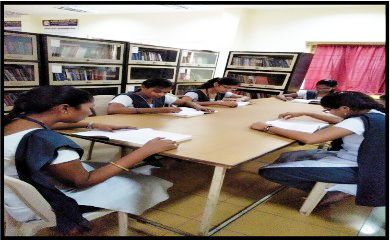 |
Faculty Incharge Mr. M.V.V Krishna , Asst. Professor Phone: 08818-284355 E-mail: krishna.cse@srivasaviengg.ac.in |
| A.MOUs with Industries | |||
|
|||
| 1.Internships | |||
| 2.Seminars / Workshops for Students | |||
| 3.Industry Oriented Training | |||
| 4.Faculty Development Proghrammes | |||
| 5.Certification Programmes | |||
| S.No | Oraganization Name | Duration | |
|---|---|---|---|
| From | To | ||
| 1 | NIT ANP | 31-12-2022 | Till Date |
| 2 | Alteryx SparkED Partner | 30-12-2022 | Till Date |
| 3 | Juniper Networks | 30-11-2022 | Till Date |
| 4 | Celonis Academic Alliance | 11-11-2022 | Till Date |
| 5 | Palo Alto Networks Cyber Security Academy | 08-11-2022 | Till Date |
| 6 | Blue Prism Academia Program | 01-11-2022 | Till Date |
| 7 | Eduskills | 31-10-2022 | 31-10-2025 |
| 8 | Hexaware | 25-04-2020 | Till date |
| 9 | APSSDC | 29-03-2019 | Till date |
| 10 | TCSiON | 25-04-2012 | Till date |
FDPs attended by the Faculty 2023-24-View
Student publications encompass a wide range of written, visual, and multimedia content produced by students within educational institutions. These publications serve as platforms for students to express their ideas, share perspectives, and engage with their peers and the broader community. They often include newspapers, magazines, literary journals, yearbooks, blogs, and digital media outlets.
The content of student publications can vary widely, covering topics such as current events, campus news, arts and culture, academic research, opinion pieces, creative writing, photography, and multimedia projects. Students involved in these publications typically serve in various roles including writers, editors, photographers, designers, and digital media producers, gaining valuable experience in journalism, communication, teamwork, and leadership.
For encouraging academic achievers, every year our College Management provides cash prizes to the Academic toppers of every semester and every section.
| Academic Year | Particulars | No.of Students Benefited | Cash Prize Amount |
|---|---|---|---|
| 2023-24 | Academic Toppers | 37 | 40500 |
| 2022-23 | Academic Toppers | 6 | 6500 |
| 2022-26 Batch | |
 |
 |
 |
 |
 |
 |
 |
|
| 2021-25 Batch | |
 |
 |
 |
 |
 |
|
Maitri Association is a compassionate community where members, united by the spirit of 'Maitri' come together to contribute funds for those in need. Through collective efforts, the club aims to make a positive impact on the lives of individuals facing challenges, fostering a sense of solidarity and kindness within the group.
 |
 |
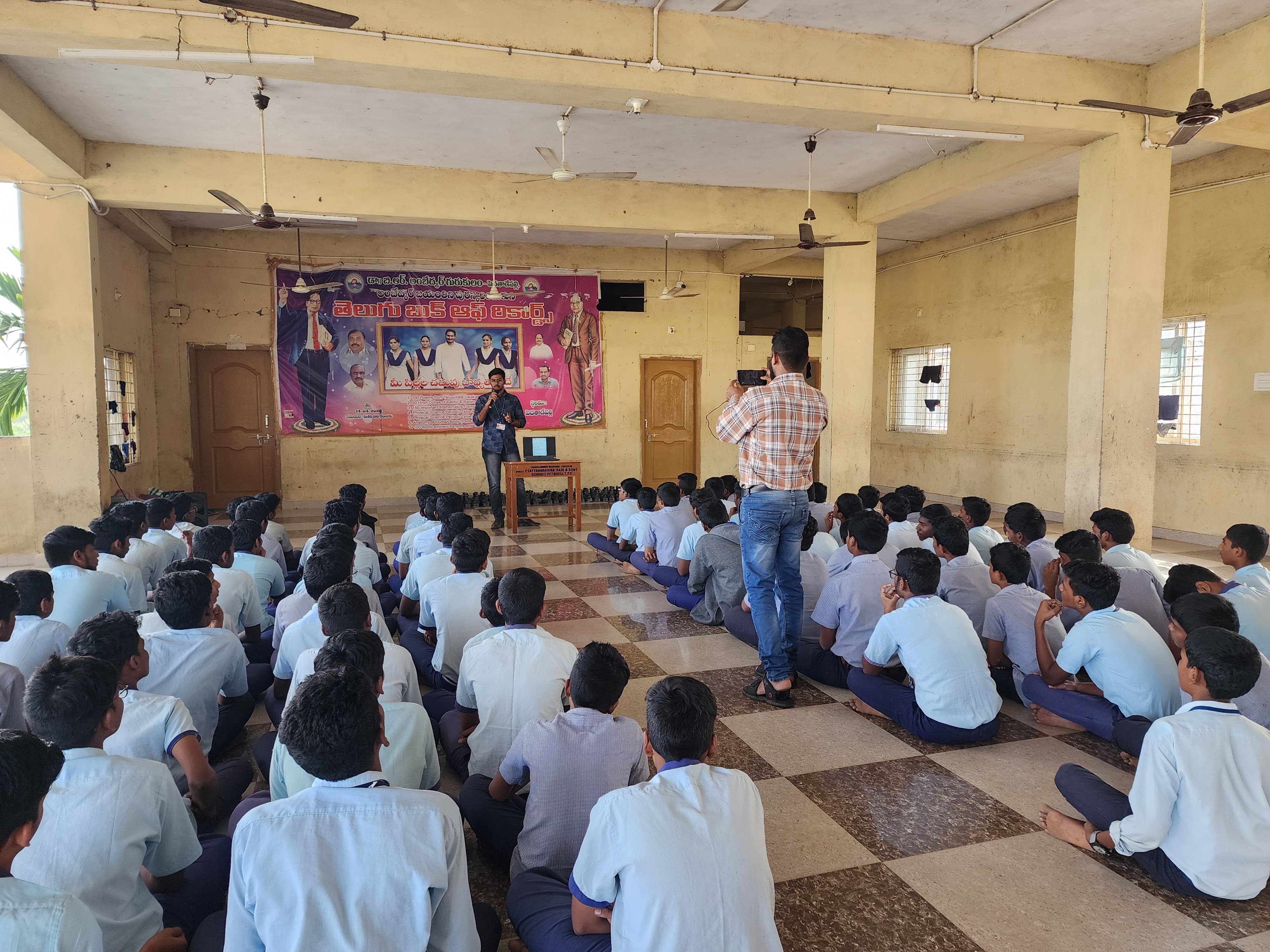 |
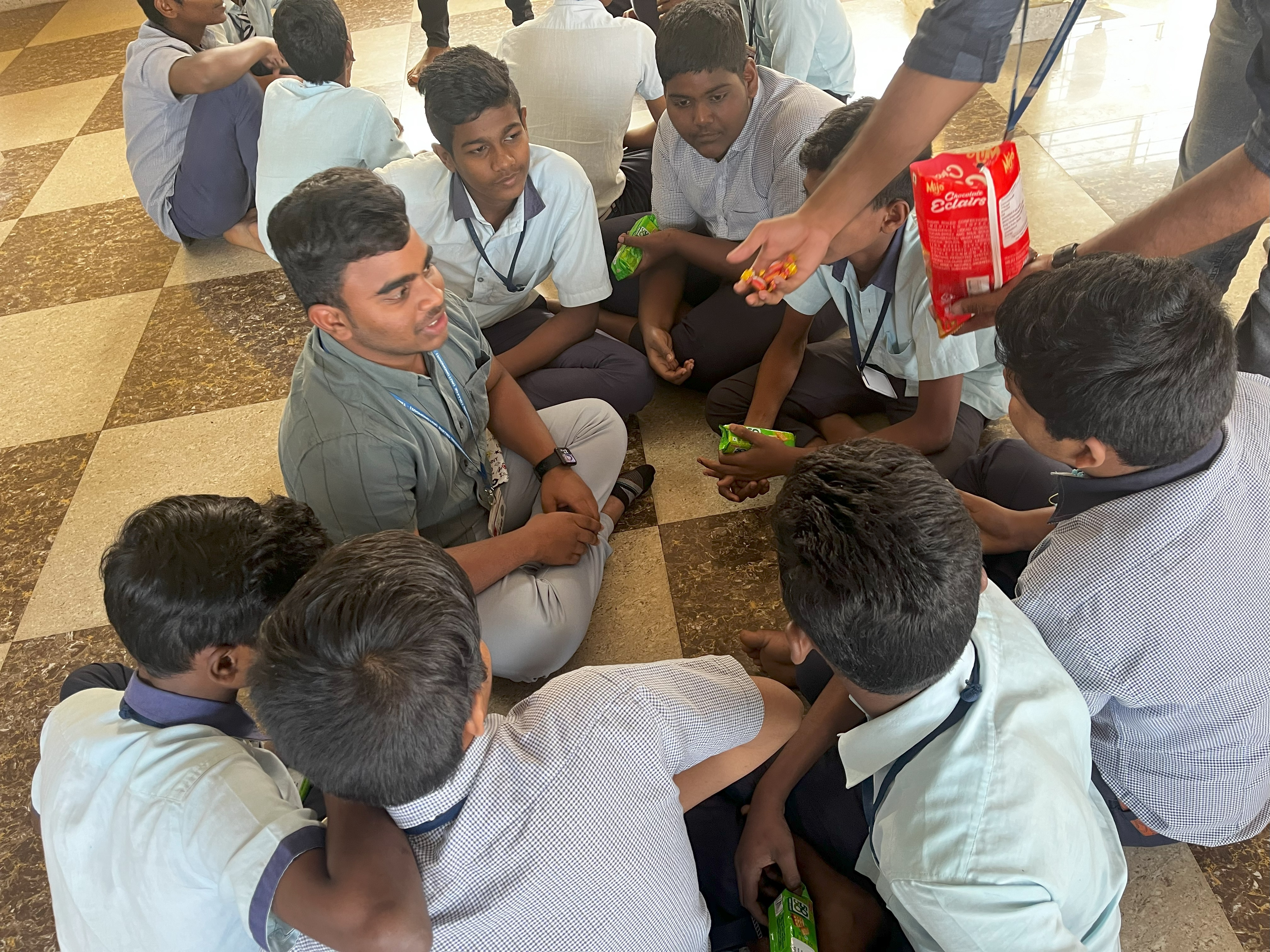 |
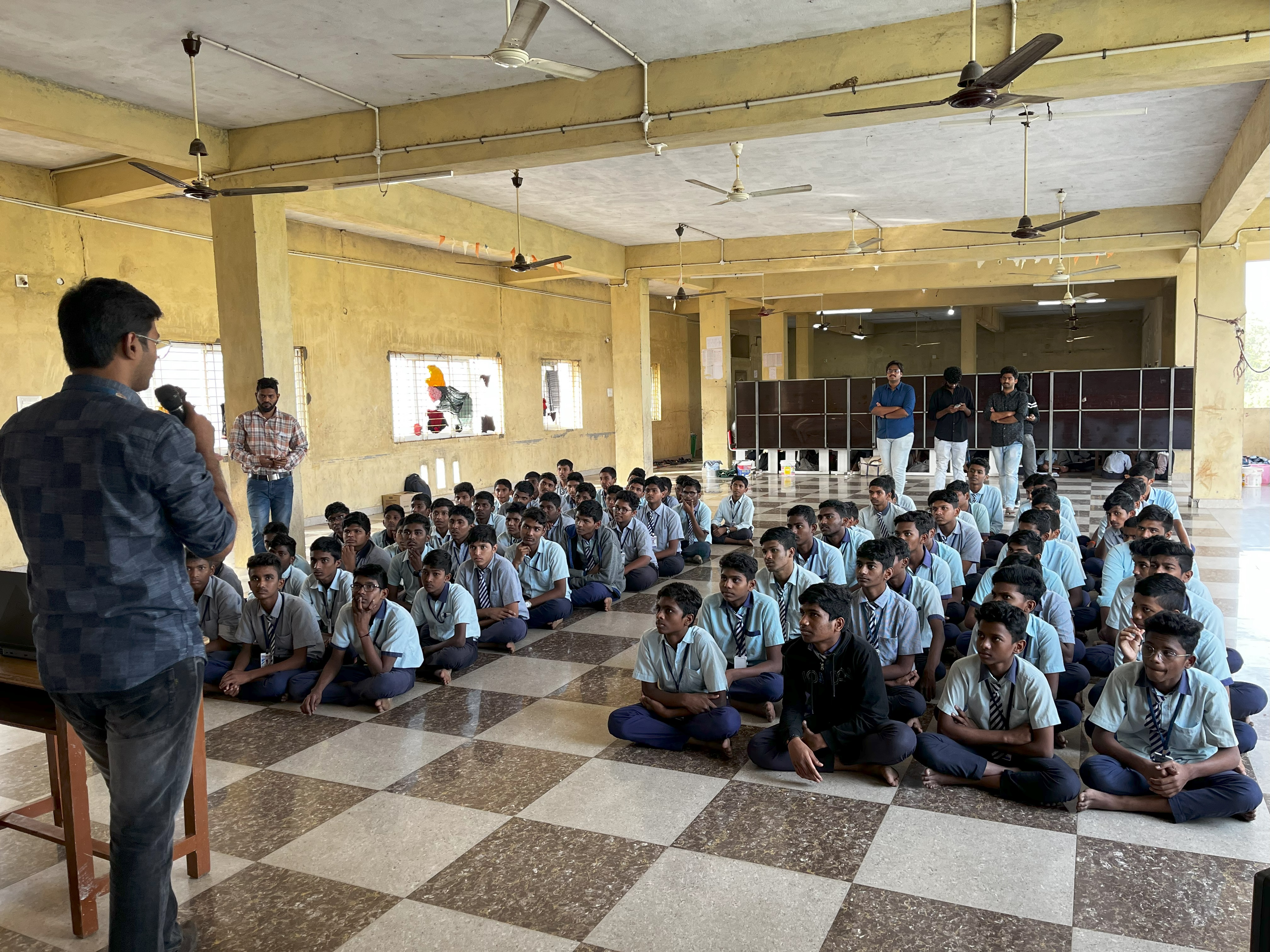 |
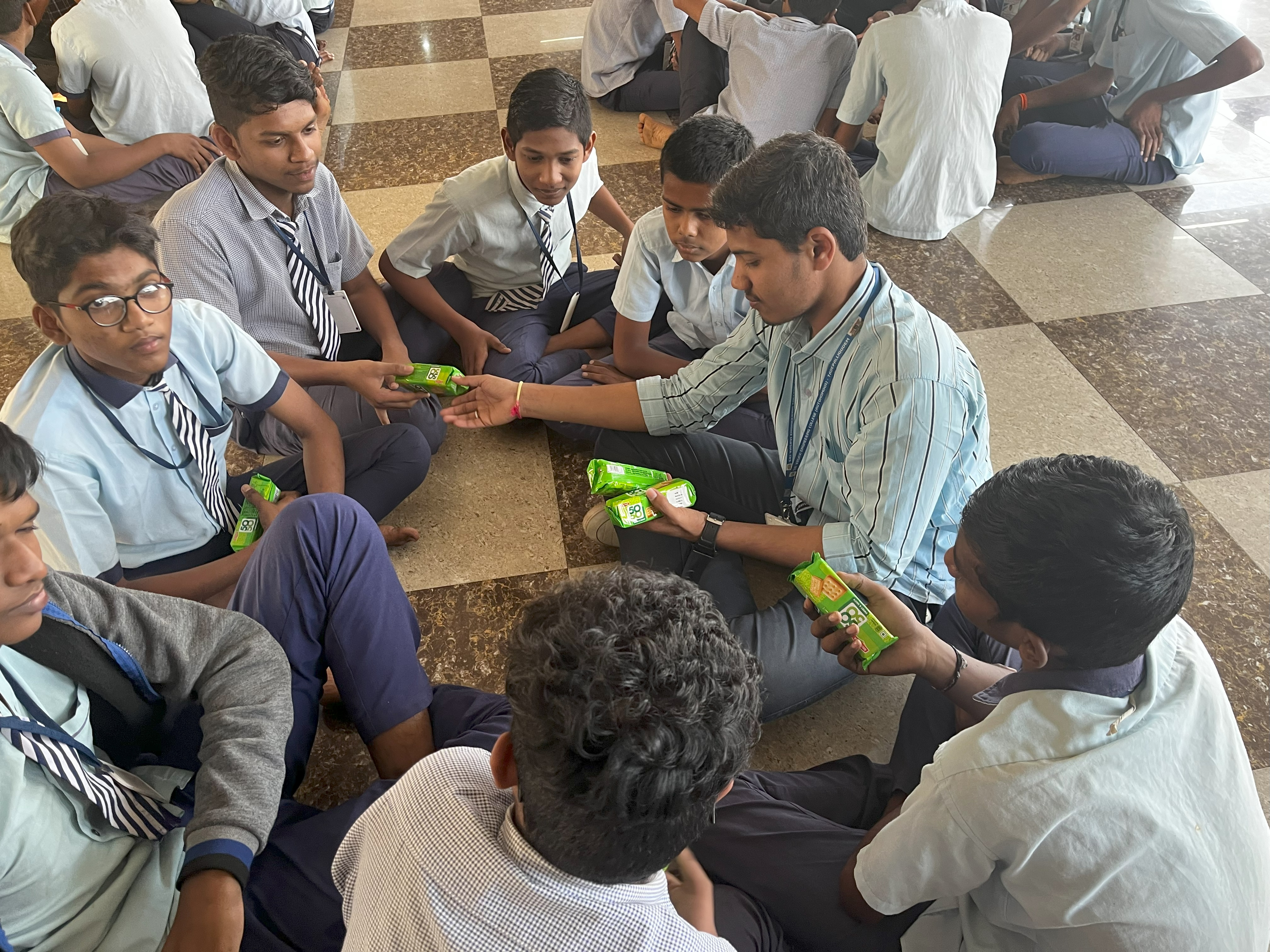 |
